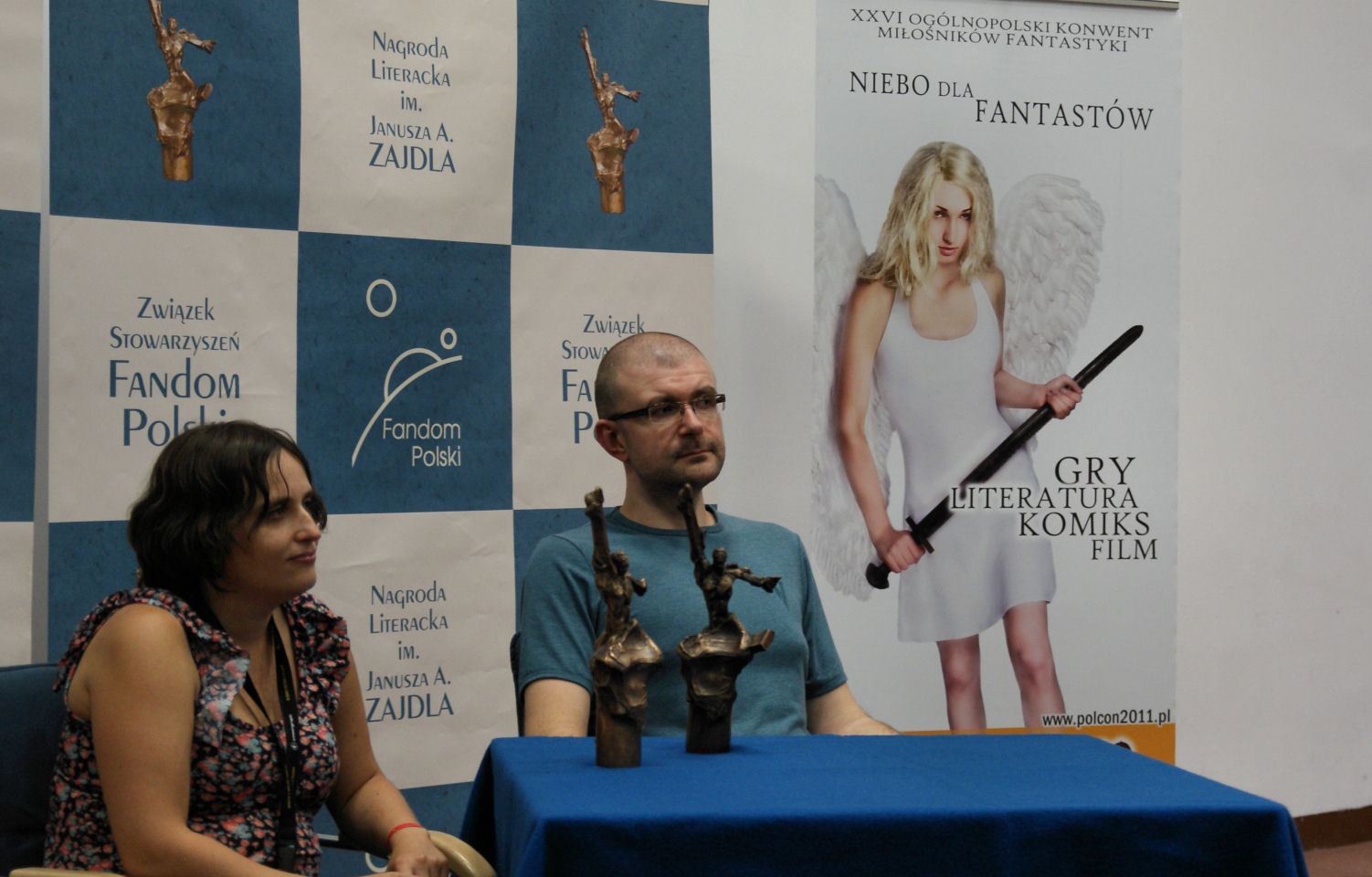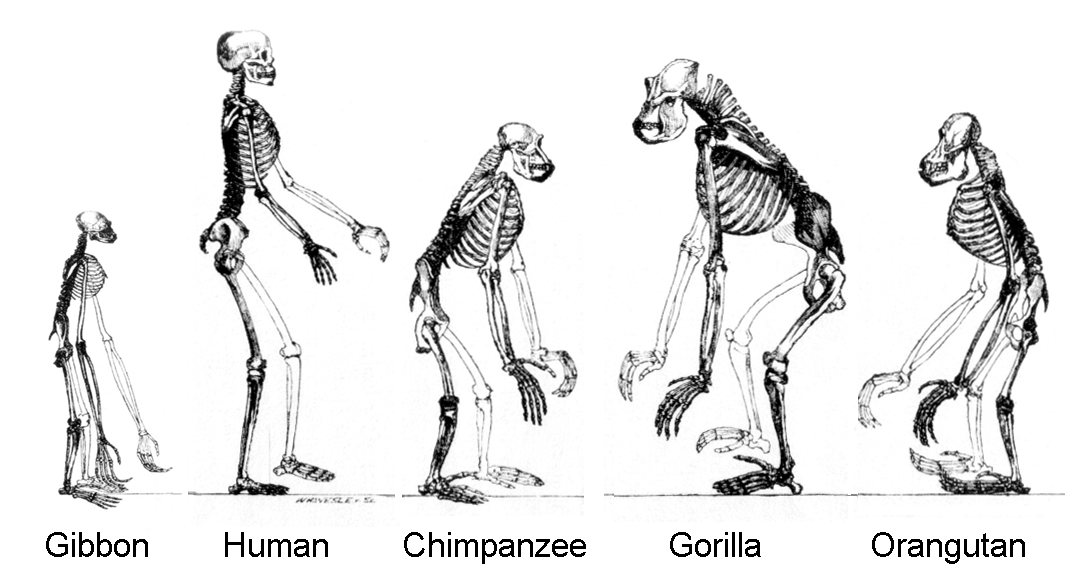|
Perfect Imperfection
''Perfect Imperfection: First third of progress'' (; also sometimes translated as "''Ideal Imperfection''") is a science fiction novel published in 2004 by the Polish science fiction writer Jacek Dukaj, ostensibly as the first part of a planned trilogy (no other parts have been published, nor announced as under development). It was published in Poland by Wydawnictwo Literackie. The novel received the prime Polish award for science-fiction literature, Janusz A. Zajdel Award, in 2004. It was translated to Russian in 2019. The book was positively received by critics, although some noted that it thematically resembles the author's older works, likely because it was written several years before it was published. Its unique language, including "posthuman grammar", has received a number of scholarly interpretations. Plot A 21st-century astronaut, Adam Zamoyski, is recovering after an accident. At first, he thinks that he is recovering from a plane crash, and any bizarre things he ... [...More Info...] [...Related Items...] OR: [Wikipedia] [Google] [Baidu] |
Jacek Dukaj
Jacek Józef Dukaj (pronounced: ; born 30 July 1974) is a Polish science fiction and fantasy writer. His fiction explores such themes as alternate history, alternative physics and logic, human nature, religion, the relationship between science and Power (social and political), power, technological singularity, artificial intelligence, and transhumanism. He is regarded among the most popular Polish contemporary science fiction authors. He is the recipient of numerous national and international literary prizes including the European Union Prize for Literature, Janusz A. Zajdel Award and Eurocon#European SF Awards, European Science Fiction Award. Career He was born on 30 July 1974 in Tarnów. He graduated from High School No. 3 in Tarnów and subsequently studied philosophy at the Jagiellonian University in Kraków. He made his literary debut at the age of 16 when he published his short story "" ("The Golden Galley") in the ''Fantastyka'' science-fiction monthly. In 1997, he pub ... [...More Info...] [...Related Items...] OR: [Wikipedia] [Google] [Baidu] |
Scarcity
In economics, scarcity "refers to the basic fact of life that there exists only a finite amount of human and nonhuman resources which the best technical knowledge is capable of using to produce only limited maximum amounts of each economic good."Samuelson, P. Anthony., Samuelson, W. (1980). Economics. 11th ed. / New York: McGraw-Hill. If the conditions of scarcity did not exist and an "infinite amount of every good could be produced or human wants fully satisfied ... there would be no economic goods, i.e. goods that are relatively scarce..." Scarcity is the limited availability of a commodity, which may be in demand in the market or by the commons. Scarcity also includes an individual's lack of resources to buy commodities. The opposite of scarcity is abundance. Scarcity plays a key role in economic theory, and it is essential for a "proper definition of economics itself".Montani G. (1987) Scarcity. In: Palgrave Macmillan (eds) ''The New Palgrave Dictionary of Economics''. Palgr ... [...More Info...] [...Related Items...] OR: [Wikipedia] [Google] [Baidu] |
Computer Hardware
Computer hardware includes the physical parts of a computer, such as the central processing unit (CPU), random-access memory (RAM), motherboard, computer data storage, graphics card, sound card, and computer case. It includes external devices such as a Computer monitor, monitor, Computer mouse, mouse, Computer keyboard, keyboard, and Computer speakers, speakers. By contrast, software is a set of written instructions that can be stored and run by hardware. Hardware derived its name from the fact it is ''Hardness, hard'' or rigid with respect to changes, whereas software is ''soft'' because it is easy to change. Hardware is typically directed by the software to execute any command or Instruction (computing), instruction. A combination of hardware and software forms a usable computing system, although Digital electronics, other systems exist with only hardware. History Early computing devices were more complicated than the ancient abacus date to the seventeenth century. French ... [...More Info...] [...Related Items...] OR: [Wikipedia] [Google] [Baidu] |
Computer
A computer is a machine that can be Computer programming, programmed to automatically Execution (computing), carry out sequences of arithmetic or logical operations (''computation''). Modern digital electronic computers can perform generic sets of operations known as Computer program, ''programs'', which enable computers to perform a wide range of tasks. The term computer system may refer to a nominally complete computer that includes the Computer hardware, hardware, operating system, software, and peripheral equipment needed and used for full operation; or to a group of computers that are linked and function together, such as a computer network or computer cluster. A broad range of Programmable logic controller, industrial and Consumer electronics, consumer products use computers as control systems, including simple special-purpose devices like microwave ovens and remote controls, and factory devices like industrial robots. Computers are at the core of general-purpose devices ... [...More Info...] [...Related Items...] OR: [Wikipedia] [Google] [Baidu] |
Adaptation
In biology, adaptation has three related meanings. Firstly, it is the dynamic evolutionary process of natural selection that fits organisms to their environment, enhancing their evolutionary fitness. Secondly, it is a state reached by the population during that process. Thirdly, it is a phenotypic trait or adaptive trait, with a functional role in each individual organism, that is maintained and has evolved through natural selection. Historically, adaptation has been described from the time of the ancient Greek philosophers such as Empedocles and Aristotle. In 18th and 19th-century natural theology, adaptation was taken as evidence for the existence of a deity. Charles Darwin and Alfred Russel Wallace proposed instead that it was explained by natural selection. Adaptation is related to biological fitness, which governs the rate of evolution as measured by changes in allele frequencies. Often, two or more species co-adapt and co-evolve as they develop adaptations tha ... [...More Info...] [...Related Items...] OR: [Wikipedia] [Google] [Baidu] |
Intelligence
Intelligence has been defined in many ways: the capacity for abstraction, logic, understanding, self-awareness, learning, emotional knowledge, reasoning, planning, creativity, critical thinking, and problem-solving. It can be described as the ability to perceive or infer information and to retain it as knowledge to be applied to adaptive behaviors within an environment or context. The term rose to prominence during the early 1900s. Most psychologists believe that intelligence can be divided into various domains or competencies. Intelligence has been long-studied in humans, and across numerous disciplines. It has also been observed in the cognition of non-human animals. Some researchers have suggested that plants exhibit forms of intelligence, though this remains controversial. Etymology The word '' intelligence'' derives from the Latin nouns '' intelligentia'' or '' intellēctus'', which in turn stem from the verb '' intelligere'', to comprehend or perceive. In the M ... [...More Info...] [...Related Items...] OR: [Wikipedia] [Google] [Baidu] |
Transhumanism
Transhumanism is a philosophical and intellectual movement that advocates the human enhancement, enhancement of the human condition by developing and making widely available new and future technologies that can greatly enhance longevity, cognition, and well-being. Transhumanist thinkers study the potential benefits and dangers of emerging technologies that could overcome fundamental human limitations, as well as the technoethics, ethics of using such technologies. Some transhumanists speculate that human beings may eventually be able to transform themselves into beings of such vastly greater abilities as to merit the label of posthuman#Transhumanism, posthuman beings. Another topic of transhumanist research is how to protect humanity against existential risks from Existential risk from artificial general intelligence, artificial general intelligence, asteroid impact, gray goo, high-energy particle collision experiments, natural or synthetic pandemic, and nuclear warfare. The ... [...More Info...] [...Related Items...] OR: [Wikipedia] [Google] [Baidu] |
Anthropic Principle
In cosmology, the anthropic principle, also known as the observation selection effect, is the proposition that the range of possible observations that could be made about the universe is limited by the fact that observations are only possible in the type of universe that is capable of developing observers in the first place. Proponents of the anthropic principle argue that it explains why the universe has the age and the fundamental physical constants necessary to accommodate intelligent life. If either had been significantly different, no one would have been around to make observations. Anthropic reasoning has been used to address the question as to why certain measured physical constants take the values that they do, rather than some other arbitrary values, and to explain a perception that the universe appears to be finely tuned for the existence of life. There are many different formulations of the anthropic principle. Philosopher Nick Bostrom counts thirty, but the underlying ... [...More Info...] [...Related Items...] OR: [Wikipedia] [Google] [Baidu] |
Humanity Evolution
''Homo sapiens'' is a distinct species of the hominid family of primates, which also includes all the great apes. Over their evolutionary history, humans gradually developed traits such as bipedalism, dexterity, and complex language, as well as interbreeding with other hominins (a tribe of the African hominid subfamily), indicating that human evolution was not linear but weblike. The study of the origins of humans involves several scientific disciplines, including physical and evolutionary anthropology, paleontology, and genetics; the field is also known by the terms anthropogeny, anthropogenesis, and anthropogony—with the latter two sometimes used to refer to the related subject of hominization. Primates diverged from other mammals about ( mya), in the Late Cretaceous period, with their earliest fossils appearing over 55 mya, during the Paleocene. Primates produced successive clades leading to the ape superfamily, which gave rise to the hominid and the gibbon famili ... [...More Info...] [...Related Items...] OR: [Wikipedia] [Google] [Baidu] |






